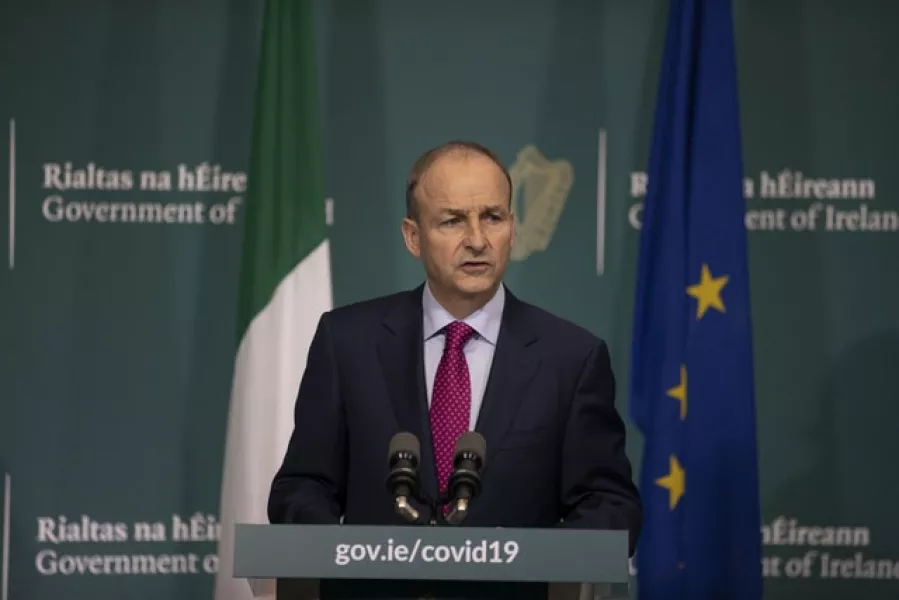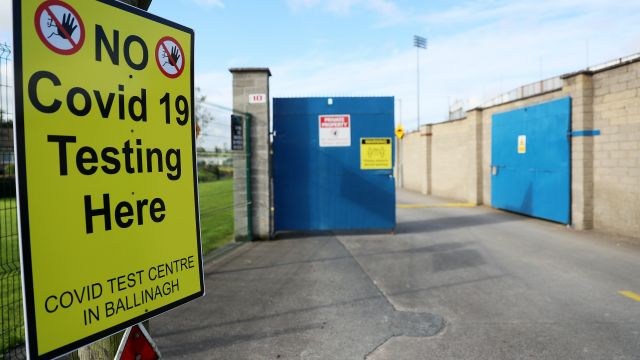Calls for a singular approach in how the governments in Belfast and Dublin respond to the crisis are growing after both jurisdictions saw record numbers of cases this week.
The Republic of Ireland saw 1,205 new cases – its highest daily increase – on Thursday, while Northern Ireland counted 763 new cases.
NI saw its highest number of daily cases yet on Wednesday (1,217).
Seven further deaths were also recorded across the island on Thursday, with three in the Republic and four in Northern Ireland.
Irish chief medical officer Dr Tony Holohan described an 82% increase in cases in a week, from 3,514 to 6,382 cases.
“The number of hospitalisations are increasing faster than the exponential growth modelling predicted,” he said.
“This indicates a rapidly deteriorating disease trajectory nationally.”
Dr Gabriel Scally, president of epidemiology and public health at the Royal Society of Medicine, blasted the “ridiculous situation” on this island, and said it was “disturbing” a joint approach was not being taken.

Dr Scally, who was born in Belfast, said: “If this was an animal disease affecting sheep or chicken or cattle, you could bet your life that there would be an integrated approach North and South.
“And a huge amount of joint working and joint testing. That is not happening. It’s very, very disturbing.”
He told RTE’s Morning Ireland: “Several people from the very beginning, myself included, said the best way of dealing with this was on an all-island basis. That has never happened.
“It needs to be a properly integrated effort North and South.”
Dr Scally criticised the “secrecy” around the testing and tracking in Northern Ireland and suggested that many cases were not being found.
“It looks like they’re not doing the job of contact tracing properly and breaking those chains of transmission,” he said.
Ireland’s foreign minister Simon Coveney later agreed that an all-island approach had worked in the past for animal diseases.
“He is right. Gabriel Scally talks a lot of sense when he’s on your programme,” he said.
But he added that Covid is “far more complicated”.
We are doing a number of things on a cross-border basis, but we need to do more.
The governments in Dublin and Belfast are regularly in touch, he said, as are the two chief medical officers.
He added: “On the cross-border issue, there is discussion in terms of tracing cross border. We now have a Covid app in both North and South that talks to each other.
“We are doing a number of things on a cross-border basis, but we need to do more. Our Government is very anxious to do more – to try to have a collective approach both North and South.”
The row comes amid a new outright ban across the Republic on visiting other houses, with level four restrictions being introduced in the border counties.
They will come into force from midnight on Thursday to apply until November 10.
Taoiseach Micheal Martin said the picture emerging in Donegal, Monaghan and Cavan is “very worrying”.
He said the national figure of cases per 100,000 in the last 14 days was 190.7, but in Monaghan it was 360, in Donegal it was 353 and in Cavan it was 571.
“The implications for local hospitals and public health in these areas is obvious and very serious, so too is the need for immediate escalation in restrictions in those three counties,” he said.
The announcement came after the Northern Ireland Executive introduced a tough new “circuit breaker” lockdown for four weeks after a record 1,217 cases were reported on Wednesday.
The new restrictions will see schools close for two weeks – while pubs, restaurants and non-essential retail will shut for four.







